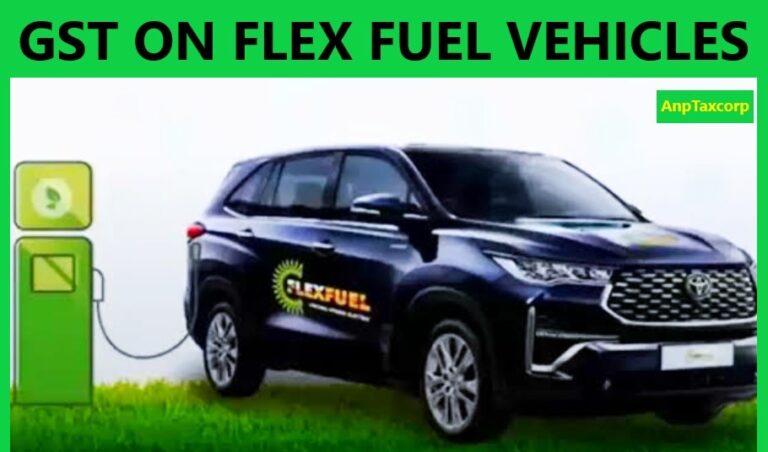Presently, Flex Fuel Vehicles are subject to a GST rate of 28%, along with a 15% cess. Except Electric vehicles (5% GST) and Hydrogen fuel cell vehicles (12% GST), all other vehicle categories, including two-wheelers, attract a GST rate of 28%.
The Centre is currently engaged in discussions with the industry regarding the potential reduction of Goods and Services Tax (GST) on flex fuel vehicles (FFVs) from the existing 28 per cent rate. However, consensus remains elusive as stakeholders hold divergent opinions on the matter.
Senior officials from the Ministry of Heavy Industries (MHI), alongside industry representatives and officials from concerned departments, recently convened to delve into the issue. However, no definitive decision emerged as some companies are not in favour of the proposed reduction of GST on flex fuel vehicles, as per sources familiar with the discussions.
“We are in the process of conducting meetings, seeking input from stakeholders and various Ministries on the matter. However, we are receiving mixed responses. Some suggest a reduction in GST and cess for flex fuel vehicles, citing the government’s push for their adoption. On the other hand, some are opposing the idea,” a senior MHI official shared on condition of anonymity.
As per another source, Tata Motors and M&M are two OEMs standing against the GST reduction on flex fuel vehicles due to their substantial focus on Electric Vehicles (EVs).
The official clarified that no final decision has been reached yet, and further meetings are scheduled to discuss the issue. Presently, Flex fuel vehicles are subject to a GST rate of 28 per cent, along with a 15 per cent cess. Except for electric vehicles (5 per cent GST) and hydrogen fuel cell vehicles (12 per cent GST), all other vehicle categories, including two-wheelers, attract a GST rate of 28 per cent.
The official highlighted that all original equipment manufacturers (OEMs) are mandated to produce at least one model that runs on flex fuel.
“The mandate applies to all companies manufacturing four-wheelers and two-wheelers. Whether it’s Maruti Suzuki, Tata Motors, Mahindra & Mahindra, or Hyundai Motors, everyone must comply. However, there is ongoing disagreement regarding the potential reduction of GST,” the official explained.
MHI is expected to review the matter and present its stance to the Finance Ministry and GST Council at the earliest opportunity, the official added. The outcome will likely depend on whether the automobile industry can present a unified viewpoint.
“The discussion particularly emphasizes two-wheeler manufacturers, as the industry is advocating for the reduction. Increased adoption of FFVs in this segment could lead to significant savings on oil imports for the government. Two-wheeler firms are largely in agreement for the GST reduction on FFVs,” the source elaborated.
Last year, the Indian Sugar Mills Association (ISMA) appealed to the Ministry of Road Transport and Highways, seeking a relaxation in GST on FFVs. This move could potentially benefit their sector by promoting the production of ethanol blends.
As discussions continue, the auto industry remains divided on the issue of lowering GST for flex-fuel vehicles, with stakeholders presenting varying perspectives. Stay tuned for further updates on this significant development.
To Read the Highlights of the First-Ever National Conference of GST Enforcement Chiefs in New Delhi CLICK HERE
Also Read
Accused in Rs 10000 Crore GST Scam Involving 3077 Bogus Firms Surrenders in Court
Son of Senior TDP Leader Arrested for Alleged Cheating and GST Evasion

I am sure this piece of writing has touched all the internet visitors, its really really pleasant piece of writing on building up new weblog.